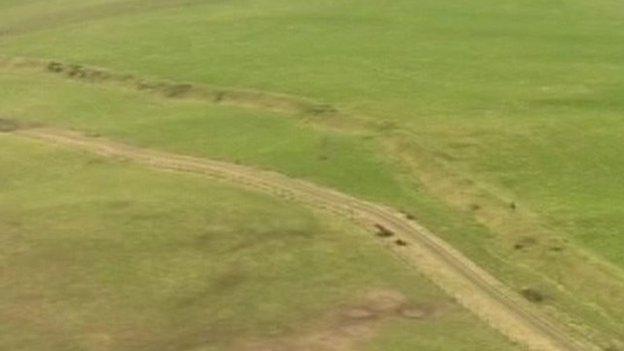Chirk Castle dig tries to unearth origins of Offa's Dyke
- Published
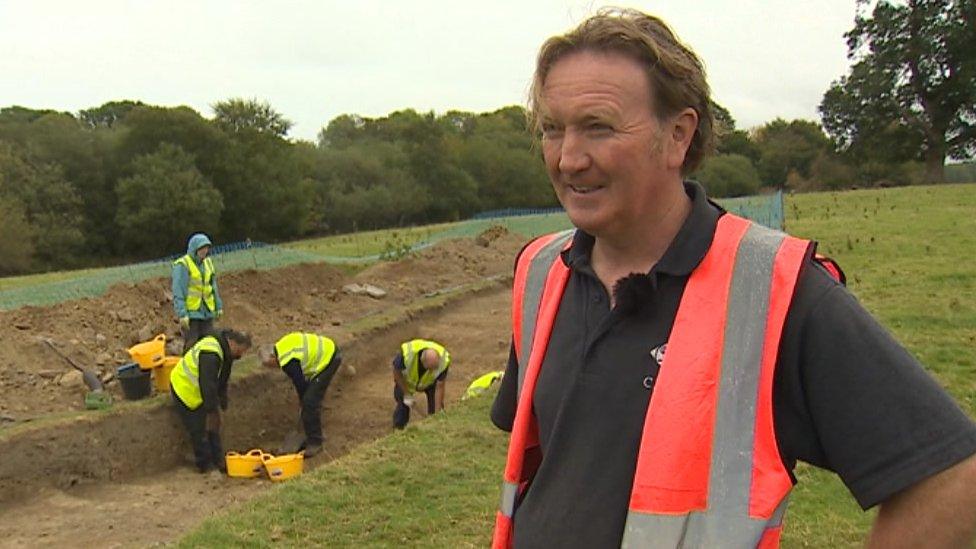
Archaeologist Ian Grant said some suggest King Offa's predecessor may have started the dyke
An archaeological dig at 13th Century Chirk Castle is trying to determine the age of Britain's longest ancient monument.
Offa's Dyke runs 177 miles (285km) from Chepstow to Prestatyn and takes its name from the 8th Century Anglo-Saxon king of Mercia.
It is believed Offa built the dyke as a border between his kingdom and Wales.
However, opinion is divided about the actual age of the dyke, part of which runs through the castle's grounds.
A previous examination of part of the dyke by experts suggested work may have started between 430 and 652 AD - more than 200 years earlier than the widely-accepted date of construction.
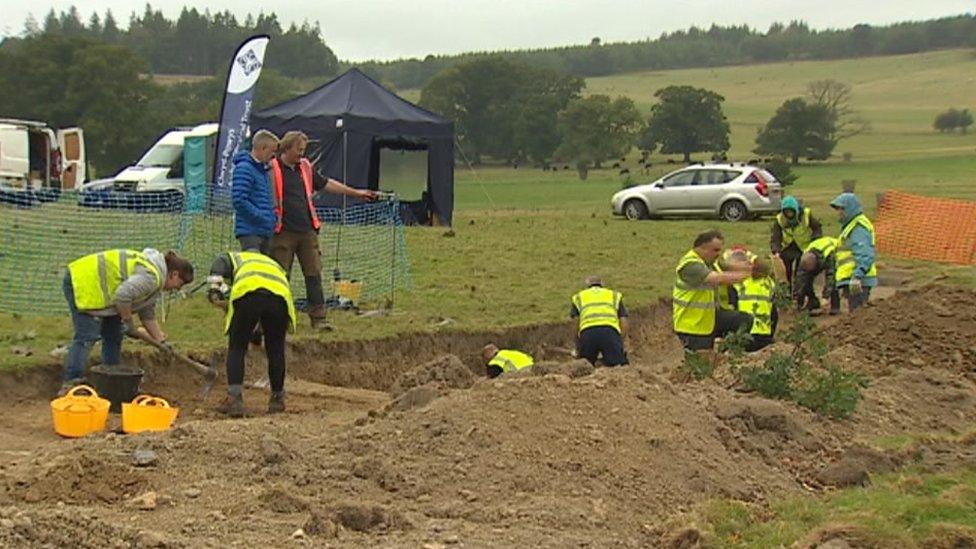
Dig site workers have started excavations
Now, members of the Clwyd-Powys Archaeological Trust (CPAT) are leading a survey at Chirk Castle, which they hope will help provide more answers.
The experts also hope it will demonstrate that construction of what is currently known as Offa's Dyke may have been started by an earlier king.
They hope to find deposits of material such as charcoal which can be sent off for radio-carbon dating.
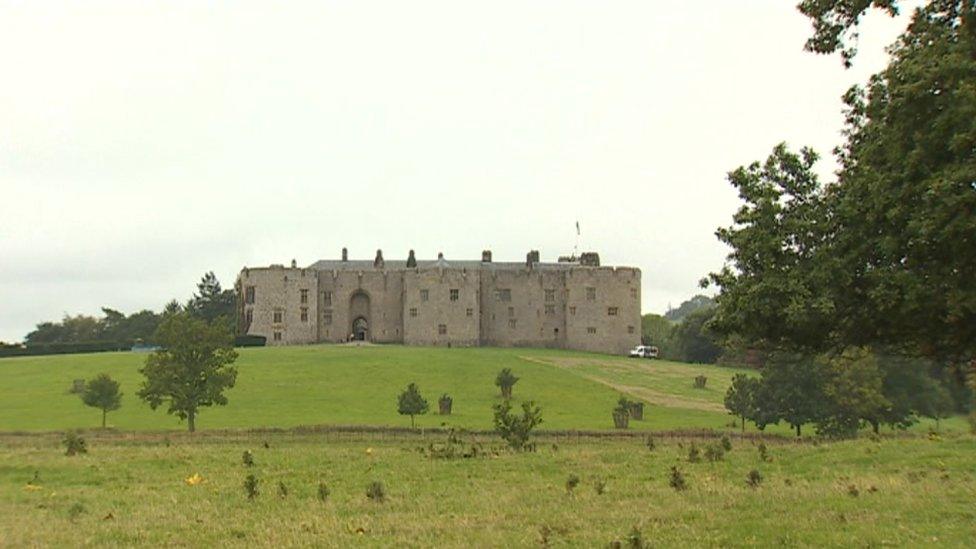
Part of Offa's Dyke runs through Chirk Castle
Senior archaeologist Ian Grant said: "It's been a long-held belief that this was constructed by King Offa, though academics and archaeologists have also thought that perhaps this earthwork was started by somebody else way before him and continued after Offa.
"So, it's a kind of work in progress that's been built over two or three hundred years.
"King Offa is in the middle of the reign and he's basically got a better public relations team who've put his name to it.
"Ultimately, that's what we're trying to find out - was it constructed before his reign? And if we can get that material to date it, we can prove it."
The project is a collaboration between CPAT and the National Trust and it focuses on earthworks at Chirk Castle, as well as a section of Wat's Dyke, external at Erddig in Wrexham which pre-dated Offa's Dyke
The Chirk project is in two sections.
The first is an unscheduled section of Offa's Dyke within the castle grounds, which is not subject to the same protections and regulations as scheduled monuments, allowing archaeologists to survey it.
The second section focuses on an area right in front of the castle.
Even if dateable material is found, CAPT said it could be months before any results are known.
- Published18 September 2018
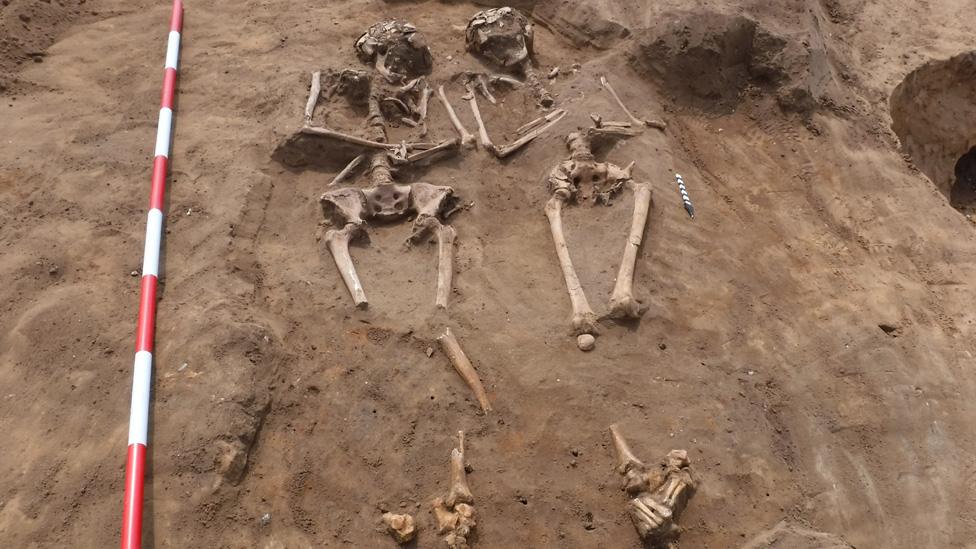
- Published17 September 2018
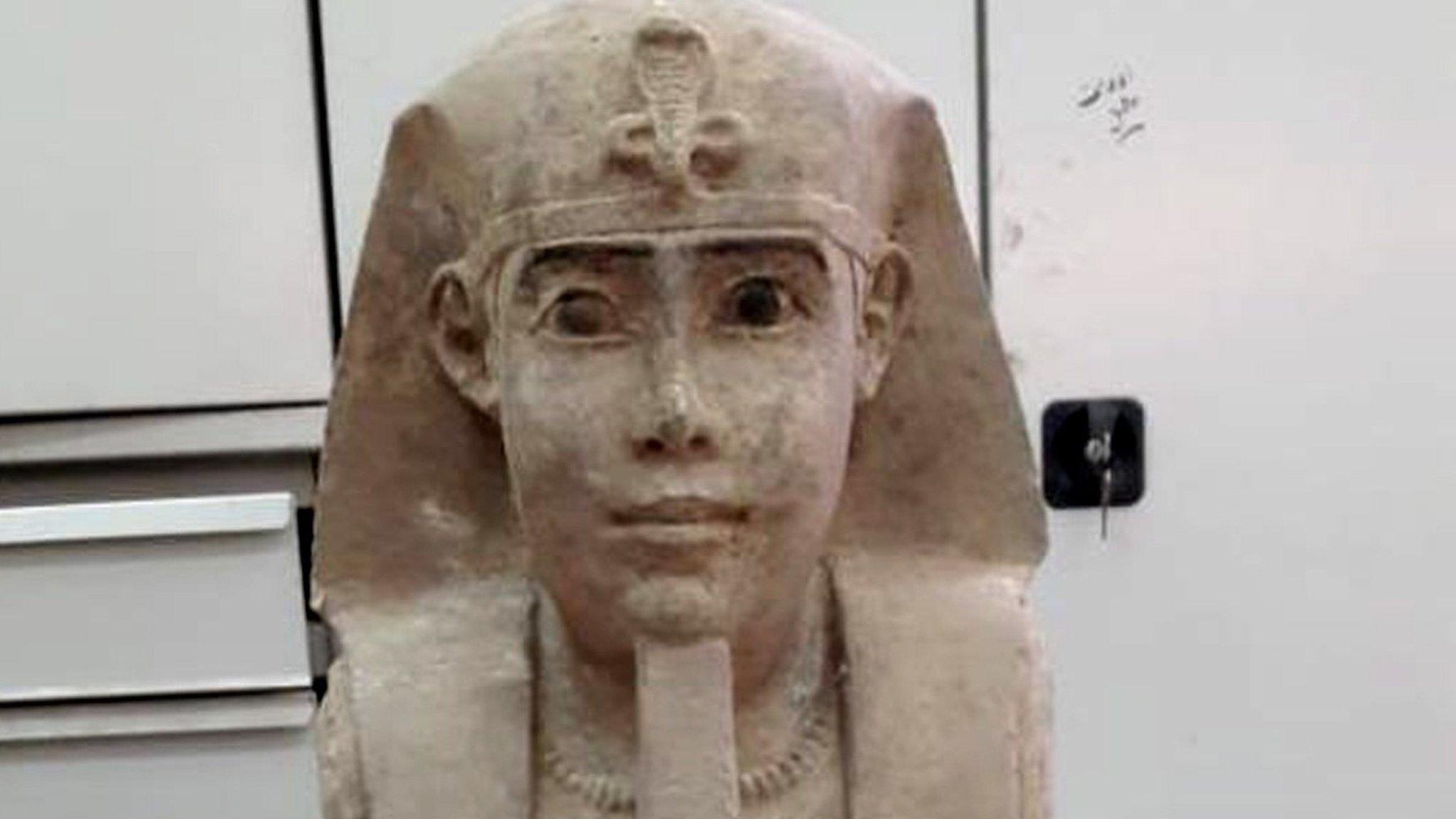
- Published16 February 2018
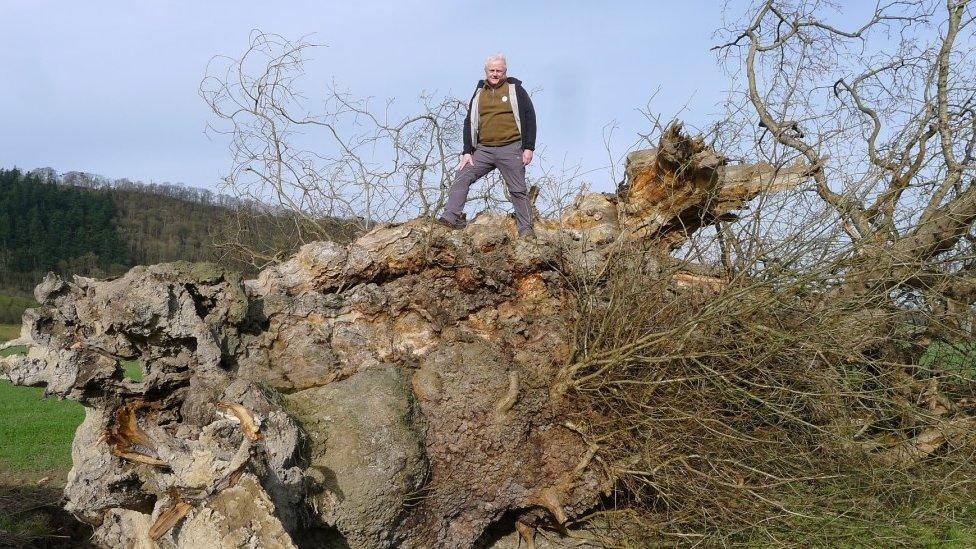
- Published7 April 2014
